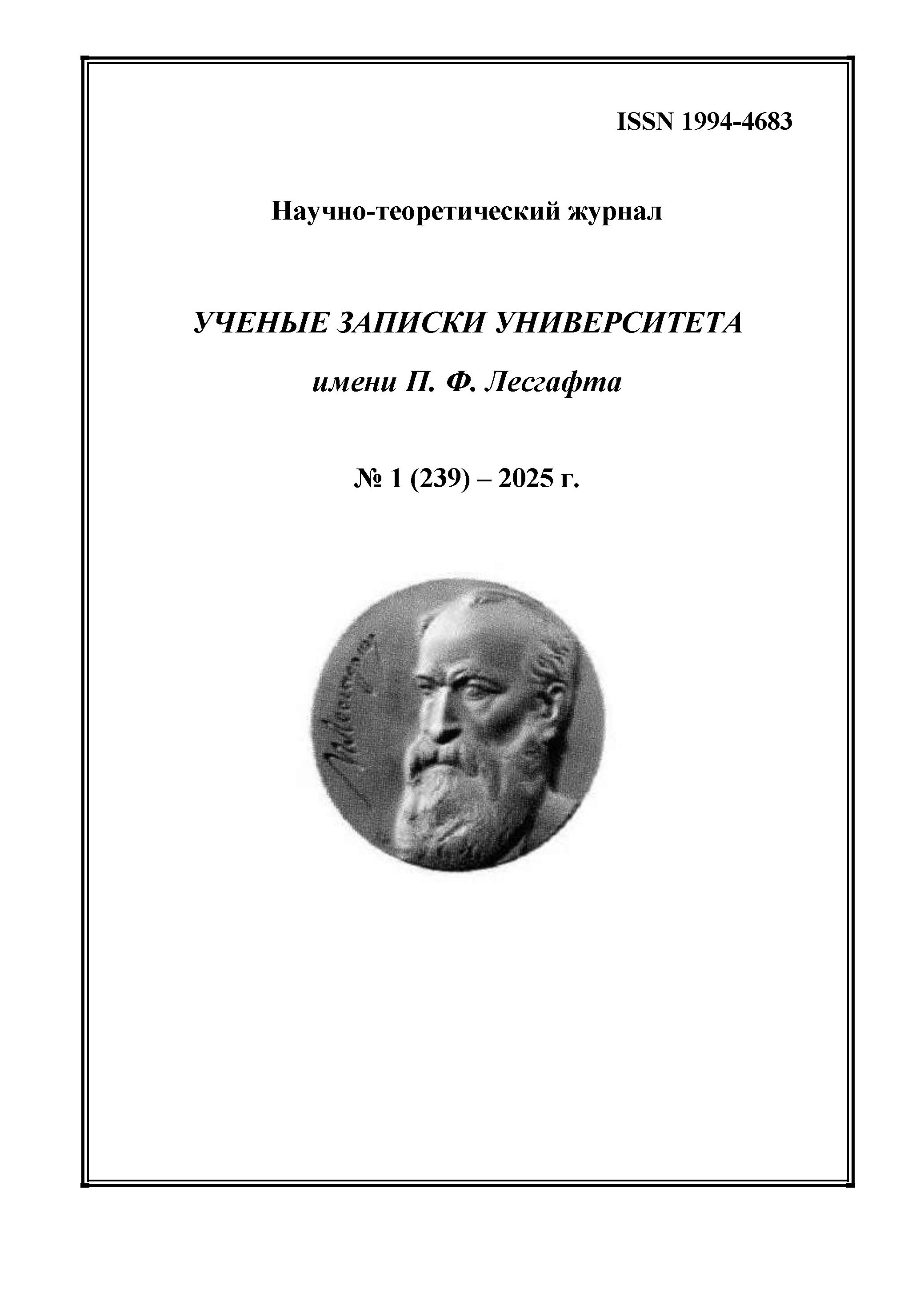CSCSTI 15.01
The purpose of the study is to analyze the influence of psychological and physiological approaches, tools, and methods in the system of integral training of athletes. The attention of scientists is focused on the processes of cognitive assessment of athletes, emotion management, and stress coping strategies used by athletes. The relevance of the topic emphasizes the necessity of integrating psychological and physiological approaches in the training of athletes to optimize results in a competitive environment. Research methods. The study employed theoretical research methods, surveys, analysis of literary data, J. Taylor's "Measurement of Anxiety Level," adapted by V. G. Norikadze; T. Holmes and R. Rahe's "Stress Resistance and Stress Adaptation"; and the symptomatic questionnaire by A. Volkov and N. Vodopyanova "Well-being in Extreme Situations." Research results. In the assessment and correction of mental disorders, key factors were identified, and prevailing sources of stress were examined, along with methods for measuring stress resilience in athletes. The authors indicated that the results of the indicators cannot be considered as manometric, as different individuals may respond differently to the same situation due to varying physiological systems. Conclusions were drawn that the integration of psychological and physiological approaches in athlete training optimizes outcomes. The use of a wide range of psychological tools and techniques, tailored to the individual characteristics and psychosomatic nature of each athlete, directly influences the development of personal qualities necessary for overcoming anxiety and stress in sports competitions.
stress resistance, adaptation, psychological state, phobia, stress, self-regulation, anxiety, physiotherapy, sports psychology
1. Gordin K. Yu. (2023), “Psychological characteristics of personality as one of the most important factors in the organization of physical training classes", Uchenye zapiski universiteta imeni P.F. Lesgafta, No. 1 (215), pp. 566–568.
2. Ilkevich T. G., Ilkevich K. B., Boldov A. S., Klimova L. Yu. (2024), "The use of physical culture for the prevention of emotional burnout among university teachers", Uchenye zapiski universiteta imeni P.F. Lesgafta, No. 6 (232), pp. 306–310.
3. Nikolaeva I. V., Vasiltsova I. A., Ageev S. L., Gordeev A. A. (2024), "Formation of emotional stability among students of technical universities", Uchenye zapiski universiteta imeni P.F. Lesgafta, No. 8 (234), pp. 293–297.
4. Savelyeva O. V., Danilova A. M., Voronin A. D. (2022), "The problem of harmonization of physical and mental health of a person", Uchenye zapiski universiteta imeni P.F. Lesgafta, No. 10 (212), pp. 555–559.
5. Aleksina A. O., Pliev D. A. (2022), "The positive impact of sports on human psychological health", Olympus. The humanitarian version, No. 2 (15), pp. 26–29.
6. Belkova D. V., Saveleva O.V (2020), " The influence of physical activity on the stress resistance of students", Skif. Questions of student science, No. 4 (44), pp. 58–62.
7. Ivanova L. A., Kazakova O. A, Seleznev A. A. (2017), "Psychological and pedagogical technologies in the training of athletes (on the example of women's sports football teams in universities) ", Uchenye zapiski universiteta imeni P.F. Lesgafta, No. 3 (145), pp. 271–277.
8. Nikolaeva I. V., Chelykanova A. I. (2023), "Physical exercise classes how important to the important factor psychological health", Trends in science and education, No. 94-2, pp. 91–93.
9. Kalmykova A. A., Saveleva O.V (2024), "The influence of physical culture on psychological well-being and quality of life", Trends in the development of science and education, No. 109-12, pp. 14–17.
10. 10. Yashchenko E. F., Slotina T. V. and Kedic S. I. (2023), "Emotional stability and its resources among working youth", Society: sociology, psychology, pedagogy, No. 11 (115), pp. 84–89.







